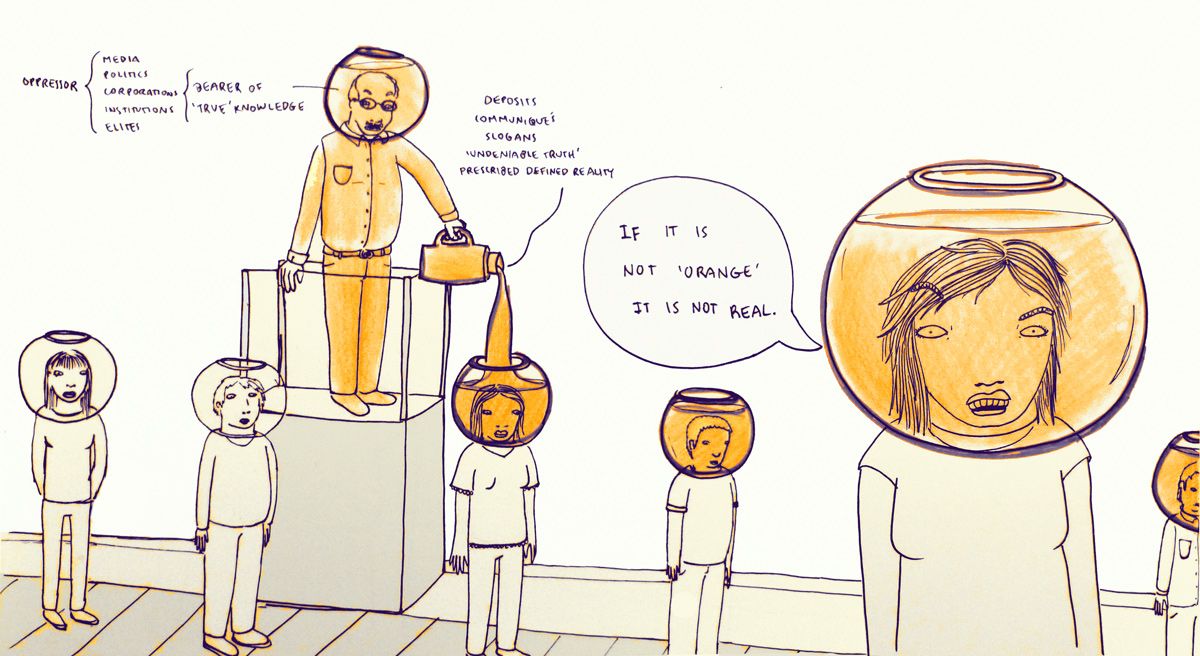|
I went to graduate colloquium meeting last Friday to listen to Dra. Antonia Darder (DAR-DARE) speak before the Unity gathering event the following day. It was a lot smaller than I expected, maybe 20 people in a small meeting room. Anyway, Dra. Darder is an internationally recognized Freirian Scholar. That is why I went. For those of you who do not know who Paulo Freire is, and you are an educator, its time to start learning about his work. He is one of the most important thinkers of this century and most people have never heard of him. Before you read further, you should at least read the first paragraph of the Wikipedia page. My own contribution was a rather elementary observation on the banking model of education during the meeting, but the rest of the conversation in our small room was nothing short of inspiring. It reminded me why I choose this profession in the first place. I want to be an agitator. Because I hate this... I've often struggled with my role as an instructional technologist because I have felt as I am merely involved in a continuance of the current educational narrative - that is, increased "performance" for less money, under increasingly rigid (and invasive) standards. It sometimes feels as if instructional technologists are non-explicitly working to kick teachers out of the role of an instructor and replace them with computers. Computers do what they are told and for less overhead, but they can only work with standardized data. This is a worrying trend.
What this meeting caused me to consider is that, if done right, the EdTech revolution in education could actually be turned into a very good thing. We don't need teachers as instructors, we need them as mentors. Computers* are far superior for delivering static instruction in bulk. The time has come to re-professionalize teachers as models for learning, as models for democracy, as learning veterans in the trenches with their students. If we need to rethink the way we think about education, it starts with power structures. As an instructional designer and technologist, I can contribute to that change. The point is that modern instructional technology has the potential to disrupt the current educational narrative in the country, to put control of education into the hands of learners; I think Freire might agree. *or other instructional technologies (e.g. video, podcasts, programmed instruction)
0 Comments
|
AuthorCameron Wills is another guy with ideas and opinions. Half-baked concepts with incremental improvements go here. Archives
January 2022
Categories |
Photo from wuestenigel


 RSS Feed
RSS Feed
